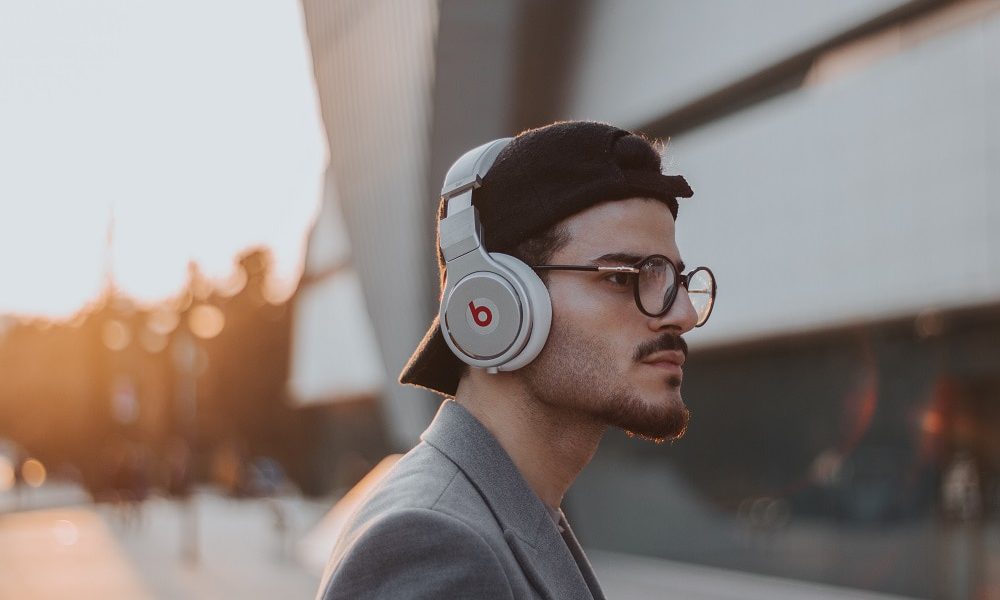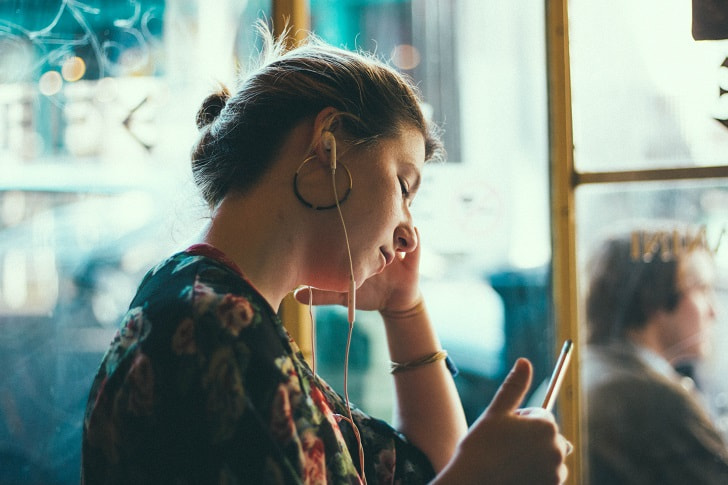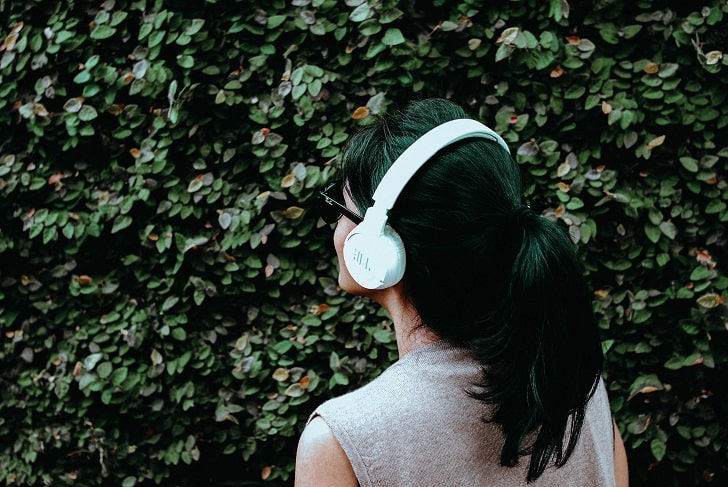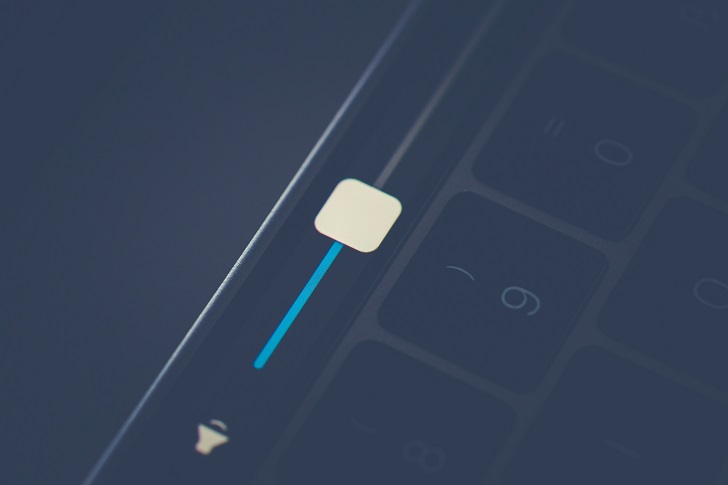
Your Earphone Habits May Be Putting You at Risk of Hearing Loss—These Tips Just Might Help You Prevent That

It’s a fairly common case for older people to have hearing problems because your ear’s ability to process sound can degenerate as you age. Some even lose their hearing in one or both ears. However, experts say that hearing loss is affecting younger people nowadays. It is suspected that harmful earphone habits may be the culprit in this trend, as younger people tend to listen to loud volumes for too long.
Loud noise can damage the hair cells in the inner ear. These sensory receptors turn sound waves into electrical signals, which are then sent to the brain for interpretation.
But how loud is considered too much? Usually, noises that register at least 85 decibels can already harm the hair cells for 2 hours. This means that your hearing may be affected if you’re constantly exposed to heavy city traffic or the noise of a crowded restaurant for that amount of time. This is also the case for a few minutes of exposure to noise that reach 100 decibels (like the maximum volume of your smartphone).

Constant exposure to noise levels 85 decibels and up may harm your sense of hearing in the long run
According to Oregon Health & Science University School of Medicine associate professor of otolaryngology Dr. Erick Gallun, the duration of your exposure to the noise can also matter just as much as its volume. You might want to mind your Spotify sessions because listening to moderately loud noise for a long time can have the same negative effects on the hair cells as that of a short exposure to loud noise.
The bad news is that hair cells don’t regenerate once these are damaged. Putting hair cells at risk might lead to a permanent hearing loss in the long run. The effects may not be noticeable in the early stages, but the damage can cumulate over time.
Aside from struggling to hear the people you’re conversing with, hearing loss can also lead to cognitive issues as you age as it overworks your brain. According to Massachusetts Eye and Ear director of audiology Dr. Kevin H. Franck, people with damaged hearing can still work out signals if they focus on it. However, they may not be able to concentrate on what it means. Studies suggest that hearing loss and dementia may be connected.
Although you may not be able to reverse the hearing damage, you can follow these tips to stop it from worsening.

Experts say that the duration of exposure to the noise also matters just like the volume
Resist the Urge to Turn Up the Volume
When you’re listening to something, your ears adapt to it and whatever volume you’re hearing becomes the norm. After tuning in for hours, you might feel like turning up the volume. However, stop yourself and take a 5- to 10-minute break instead. Gallun says that you use up the neurotransmitters that hair cells use when you’re listening to something. Taking a break may help give your body time to formulate new neurotransmitters for the hair cells.
Invest in Audio Gear
For those who like to listen to their gadgets in loud places like train stations or busy cafes, you may find yourself trying to crank up the sound to hear it over the noise around you. You might want to invest in noise-canceling headphones or earbuds so you can enjoy your music at lower volumes. It’s more respectful for people around you too. Also, make sure to wear both buds because both your ears work together to send signals to your brain. Gallun says that you might be tempted to increase the volume if you use only one earbud.
Set a Limit
There’s no set volume level that is universally considered as safe. That is because the intensity of sound from your gadgets may vary depending on the brand and the model. Instead, set a maximum volume on your device. You can do this by checking the Music or Sound option from your Settings menu. You can also download apps like My Volume or Volume Control.

Set a maximum audio volume on your device so you’ll know when you’ve reached a harmful level.
Check Your Environment
If you have a Series 4 Apple Watch or newer, you can measure the ambient noise level of your surroundings using its built-in Noise app. It also alerts you if it’s already harmful to your ears. Free apps like NIOSH Sound Level Meter and SoundPrint can also do the trick. If you’re somewhere with a noise level of more than 85 decibels, you might want to move to another location as soon as you can.
Use Earplugs for Protection
Just 5 minutes of exposure to the usual sound levels at concerts and music shows can cause hearing damage. However, it doesn’t mean that you can’t go to your fave artist’s show. Gallun recommends using musician’s earplugs to lower the volume by 20 decibels. It can also help you hear the music more clearly and cuts out the distortion. Franck says that ear protection should be part of your hearing hygiene.
Take a Quick Self-Test
According to Franck, you can use free apps to test your hearing. You can even do this in your living room. Experts recommend the World Health Organization’s hearWHO app or the Mimi Hearing Test App. If your results reveal a deficit, make sure to visit your primary care doctor or an audiologist for a follow-up check-up.
More in Anti-Aging
-
`
Jennifer Aniston’s Timeless Tips for Health and Youthfulness
Iconic Hollywood actress Jennifer Aniston has long been admired for her acting prowess and seemingly ageless beauty and vitality. Now in...
November 22, 2023 -
`
Unleash Your Entrepreneurial Drive: 5 Strategies for Self-Motivation
5. Have an Undying Passion Passion is the driving force behind the world’s most successful entrepreneurs. Self-motivation becomes second nature when...
November 19, 2023 -
`
How to Go Vegan – The Right Way!
The vegan lifestyle has seen a significant surge in popularity lately, and rightly so. Embracing veganism not only fosters personal health...
November 12, 2023 -
`
7 Eye-Opening Reasons to Drink More Water
Water is frequently hailed as the quintessential elixir for life, and rightfully so. Constituting approximately 60% of our total body weight,...
November 1, 2023 -
`
Drake’s Workout Regimen: How the Canadian Rapper Stays Fit
The lights dim, the stage is set, and the crowd’s anticipation is palpable. When the beat drops, there is one Canadian...
October 24, 2023 -
`
Why Six-Figure Family Holidays Are Becoming the New Normal
In the panoramic landscape of the modern travel scene, a particularly glittering trend is emerging, akin to finding a diamond the...
October 21, 2023 -
`
Foods With High Water Content
Water is the elixir of life, and staying adequately hydrated is crucial for maintaining our health and well-being. While sipping on...
October 15, 2023 -
`
The Impact of Wearable Technologies in Health Research
In recent years, wearable technologies have emerged as a powerful tool in health research, revolutionizing how we collect and analyze data...
October 3, 2023 -
`
How Celebrities Stay Fit? Secrets of Chris Pratt, Jennifer Lopez & More
The glitz and glamor of Hollywood may make it seem impossible for celebrities to maintain an enviable physique. But it is...
September 29, 2023















You must be logged in to post a comment Login